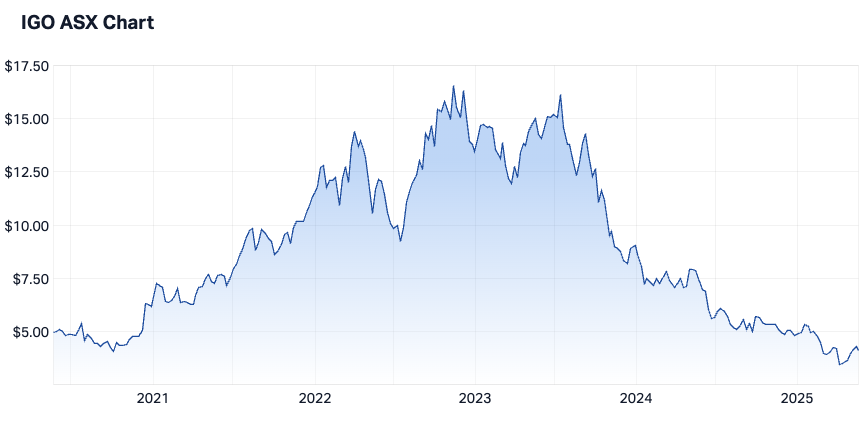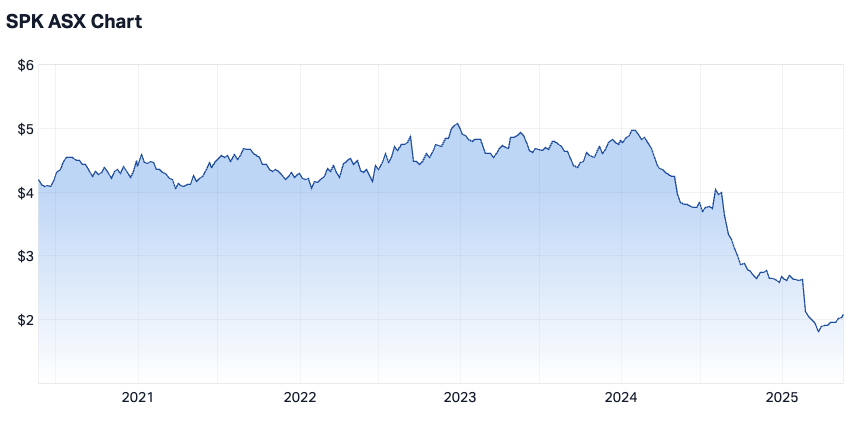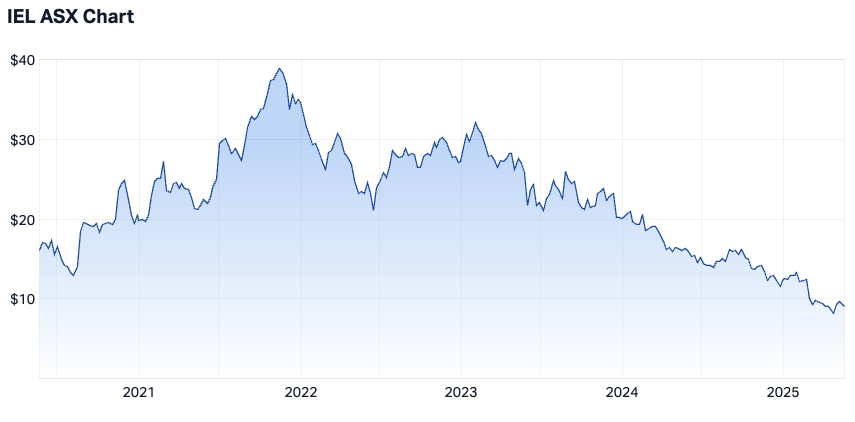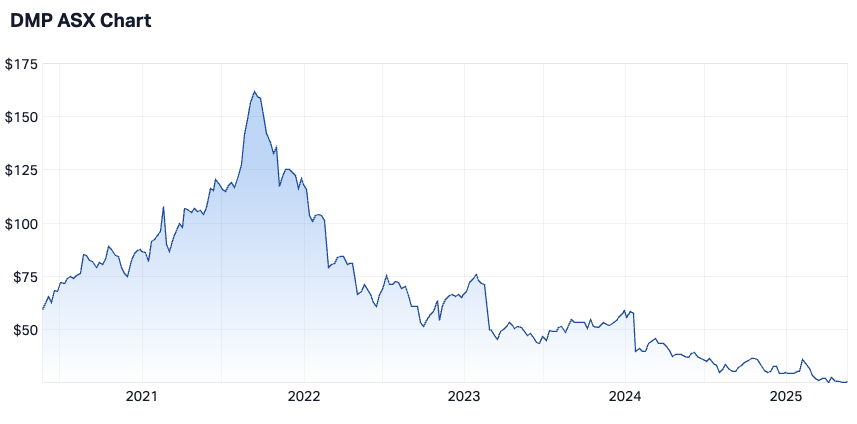The ASX 200's fallen giants - is there any way back?
Stock indices are all about perspective.
It's all well and good seeing the ASX 200 run higher if you're holding an index ETF or, even better, some of its best performers.
But it's a different story if you've invested in the laggards that are dragging the index down.
So while investors celebrate the Aussie market going green for the calendar year, we turn our attention to the underachievers.
These are the former large caps that are amongst the worst-performing ASX 200 stocks in recent times and have dropped more than 30% in the last 12 months.
Not only have they lost their large cap status, they're down in all of the following timeframes: year-to-date, 1-year, and 5-year.
In other words, they're the companies that've had a tough time of it post-COVID and seen no respite in 2025.
But is there a path to recovery or is it time to raise the white flag?
1. IGO Ltd (ASX: IGO)
- YTD performance: -12.3%
- 1-year performance: -47.8%
- 5-year performance: -15%

Mineral exploration company IGO has been on the pointy end of the slide in lithium prices over the last few years, having shared ownership of the world's largest hard rock lithium mine, Greenbushes.
It posted an after-tax loss of $782 million in H1 24 following the suspension of its beleaguered Kwinana lithium plant expansion.
It had previously also suspended its Cosmos nickel mine and put the Forrestania operation into care and maintenance.
Daniel Sullivan from Janus Henderson called it a SELL in a lithium-themed episode of Buy Hold Sell back in April, citing the profitability impact of flagging lithium demand.
37% of Livewire readers agreed at the time, but 32% called it a BUY.
Bell Potter has rated it a SELL, UBS is NEUTRAL, pending how lithium and nickel prices fare near-term.
2. Spark New Zealand (ASX: SPK)
- YTD performance: -22.7%
- 1-year performance: -46.1%
- 5-year performance: -50.8%

Kiwi telecom giant Spark remains the largest mobile provider in New Zealand but faces stiff competition and softened revenues.
It has seen earnings per share decline consistently in recent times, as reduced government investment and New Zealand's recession hit its bottom line.
SPK missed its H1 25 EBITDA market expectation by 22% and slashed its guidance for the rest of FY25 by 7%, its third downgrade for this financial year.
Wilson Asset Management has maintained that it represents value and could see decent upside in a cyclical recovery, especially after it made efforts to reduce costs and shore up its data centre investment.
It is also considered a BUY according to UBS.
3. IDP Education (ASX: IEL)
- YTD performance: -27.2%
- 1-year performance: -43%
- 5-year performance: -39.8%

IDP Education has been caught in the crossfire of the Western World's tightening immigration policies, with much of its revenue coming from its student placement services that match students from developing countries with Western universities.
As a result, the IEL share price is down almost 50% over the last 12 months, and it has consistently been amongst the 10 most-shorted stocks on the ASX.
Immigration levels were in the spotlight during the recent Australian federal election, and the UK Labour government's moves to clamp down on student visas mean this headwind is unlikely to abate any time soon.
But Morningstar analyst Shane Ponraj suggests this could be a cyclical trend, with the temporary international student caps placed by countries like Australia and Canada likely to be removed in future.
Elston's Andrew McKie told Livewire late last year that it viewed IDP as a "high-quality business" and remained confident in its long-term growth prospects.
Goldman Sachs and UBS remain NEUTRAL, looking for signs of sustainable SP volume growth before revising expectations upwards.
4. Dominos Pizza Enterprises (ASX: DMP)
- YTD performance: -16.7%
- 1-year performance: -34.6%
- 5-year performance: -57.5%

Covid-era darling Domino's has seen one of the sharpest declines on the ASX in recent years, amidst falling profits and sales slowdowns. H1 25 EBIT was down 6.7% on the previous corresponding period.
While a climb down from the halycon heights of 2021 was always likely, it has struggled to convince investors (and customers) in a higher-inflation environment.
Its international expansion has also hit its fair share of snags.
Schroders Australia's Martin Conlon pointed to the closure of more than 200 loss-making stores (mainly in Japan) and flagging sales growth as examples of its difficulties expanding overseas.
Macquarie and UBS remain NEUTRAL, while Morgan Stanley is OVERWEIGHT.
2 topics
4 stocks mentioned
7 contributors mentioned

